Tillerson, Turkish leaders play nice, but no concrete progress yet on tense relations
The U.S. and Turkey say there a new mechanisms to reduce tensions.
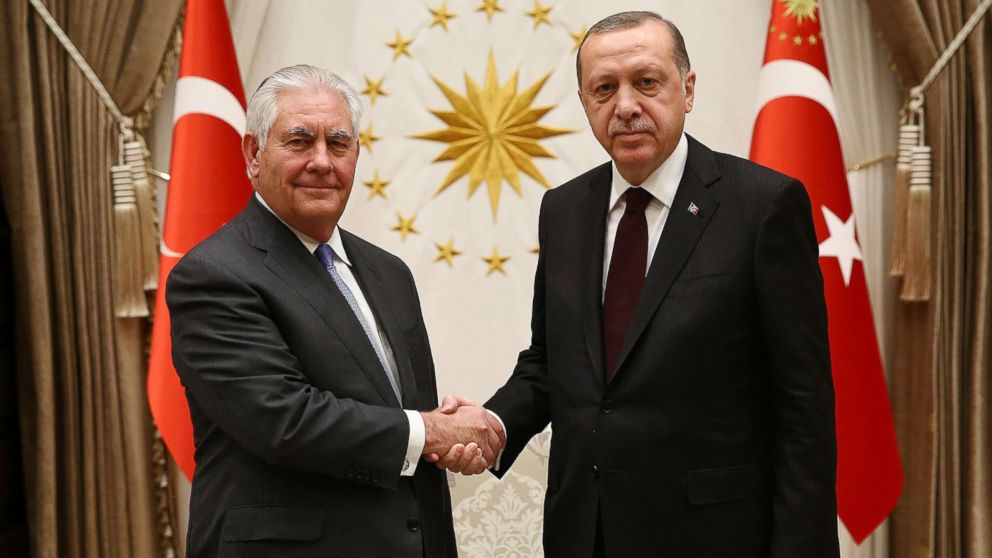
— -- U.S Secretary of State Rex Tillerson and Turkish Foreign Minister Mevlut Cavusoglu on Friday struck an optimistic chord as they downplayed tensions between the NATO allies while announcing unspecified “mechanisms” for the countries to work through their recent disaffection.
Speaking through an interpreter, Cavusoglu said the U.S. and Turkey had "taken an important turn in terms of normalizing our relations," adding, “We will work like two allies, establishing trust once again.”
Tillerson sounded the same notes: "We’re not going to act alone any longer... We’re going to lock arms, we’re going to work through the issues that are causing difficulties for us, and we’re going to resolve them."
The cheery tone of Friday’s announcement had an entirely different timbre from Tillerson’s curt dismissal of the press corps Thursday evening, declining to take questions after more than three hours of meetings with Cavusoglu and his firebrand president, Recep Tayyip Erdogan.
"Not tonight," Tillerson said in the lobby of his hotel in Ankara, Turkey's capital. "We're still working."
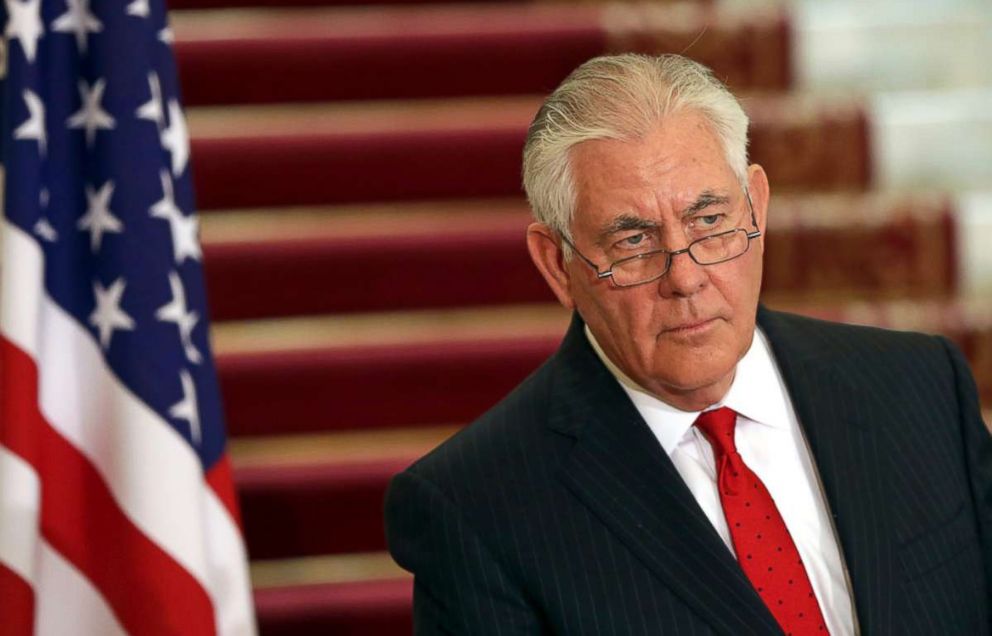
But on Friday Cavusoglu and Tillerson touted the new "mechanisms" for the countries to work through their differences -- everything from U.S. support for Turkey's enemy, the Kurds; Turkey harassing and arresting American citizens and embassy employees; the possible extradition of a Turkish cleric legally residing in the U.S.; and more. The mechanism is an expansion of an already existing working group that sorted out the recent spat over visa services, where the U.S. stopped issuing visas in Turkey and Turkey responded in kind.
"We want to overcome all of these by working together, and I am sure that all of these will bring important results for us," Cavusoglu told reporters, denying that it was "kicking the ball off to the corner," or the can down the road: "They are not delaying the process. To the contrary, these are important aspects to get results."
Among those cooperative efforts, according to Reuters, could be a joint deployment of American and Turkish forces in Manbij -- a Syrian city not far from the Turkish border where the two countries' forces have had tense encounters.
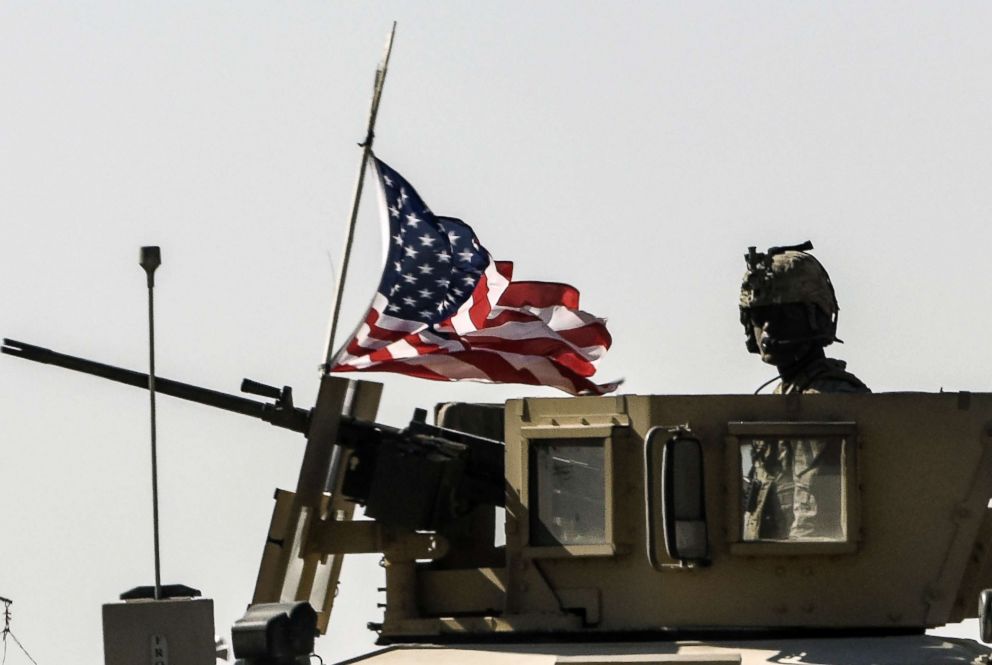
U.S. forces have been deployed in the city to train -- and in effect, protect -- America's Kurdish ally known as the YPG. The group's formidable fighters made up the bulk of the Syrian Democratic Forces, which the U.S. trained, armed, and assisted as a local ground force to defeat ISIS. The SDF swept ISIS out of its major strongholds in eastern Syria, including its self-declared capital Raqqa.
But Turkey considers the YPG terrorists and enemies of the state because of their ties to other Kurdish groups within their borders, and after attacking Kurds in the nearby Syrian city Afrin, they've threatened to move onto Manbij -- leading to a stand-off and a war of words with U.S. commanders.
The State Department would not confirm that the U.S. is considering a joint deployment to cool tensions or what one would look like. But officials pointed to Tillerson's comments Friday that made clear the U.S. seeks cooperation and Manbij is the first step.
"We’re going to address Manbij first... through the working group," Tillerson said. A State Department official told ABC News that process will begin no later than mid-March, but deferred further questions to the Pentagon.
Still, most of the issues that have divided the two countries remained, and despite the positive spin, neither side seemed to change their actual position on them.
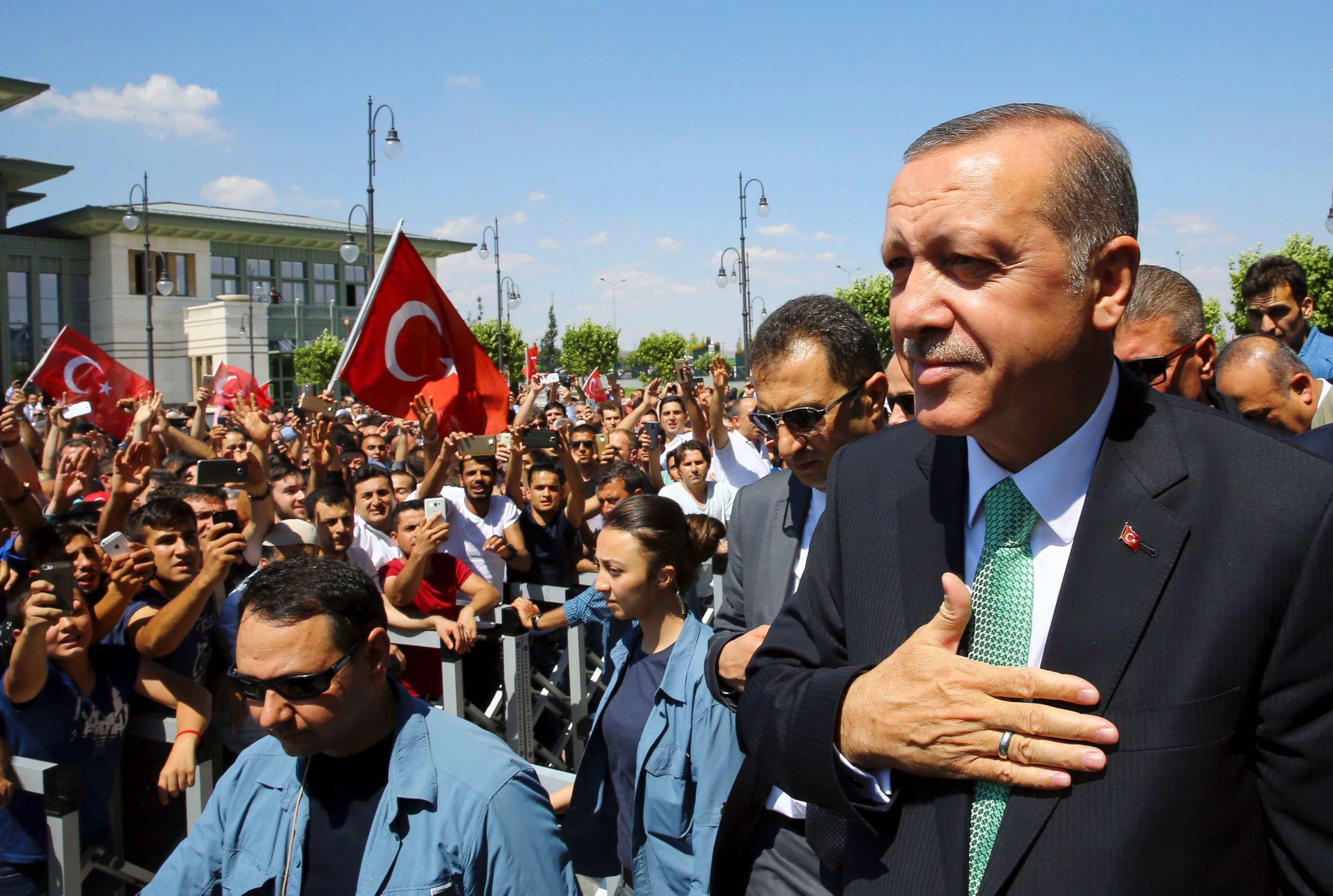
The extradition of that Turkish cleric, for example, has been a major sticking point. Fetullah Gulen is a legal permanent resident in the U.S., but Erdogan has blamed him for leading a failed coup against him in July 2016 and demanded the U.S. turn him over. Turkish Prime Minister Binali Yildirim went so far as to tell reporters in November that it was tantamount to Turkey protecting the 9/11 masterminds.
After discussing the issue with Erdogan at length, however, Tillerson signaled no change in the U.S. position -- that there isn't enough evidence to extradite a legal permanent resident to Turkey. "We’ve agreed that we will continue to examine all the evidence that can be provided to us," he said.
In addition, Cavusoglu blasted the YPG for "attacking our citizens... our people are dying." Incensed that the U.S. ever provided arms to them, Turkey has demanded that the U.S. now take them back.
But Tillerson did not waiver in the U.S.'s support for the group, especially since American troops still need them to finish the job against ISIS. "We have always been clear with Turkey that the weapons provided to the Syrian Democratic Forces would be limited, mission-specific, and provided on an incremental basis to achieve military objectives only," he reiterated. But it's unclear if the U.S. will make any changes to its support any time soon -- or ever be able to "take back" the weapons.
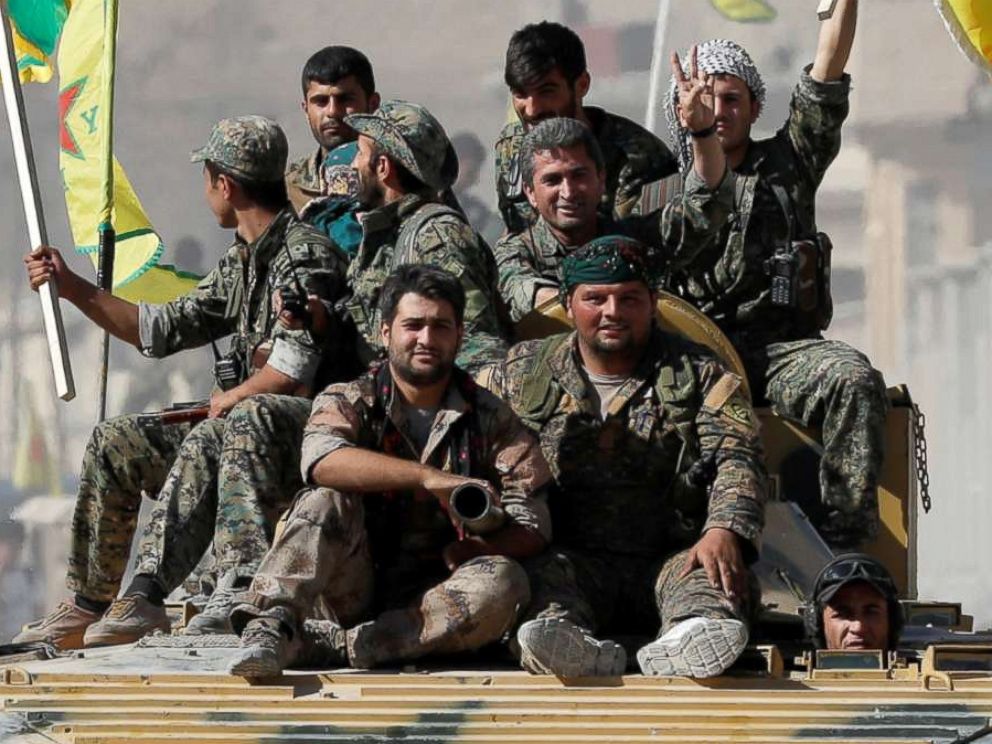
Turkey will also move ahead with a purchase of a Russian weapons system, too, even though the U.S. continues to oppose the sale and it may even be illegal under a new sanctions law passed last year. State Department spokesperson Heather Nauert told reporters Thursday, "We would oppose the purchase of that," but Cavusoglu reiterated Friday, "This is our national security, and it’s important for our national security."
For those American citizens imprisoned by Turkey -- many of whom were swept up in the crackdown after that coup and charged with terrorism offenses -- Tillerson reiterated that the U.S. still demands their immediate release. But Cavusoglu was dismissive: "We needed to take rapid steps against this terrorist organization. This was the expectation of our people," he said, justifying the detentions.
And if the U.S. or these Americans disagree? "The appeal process is open," he added.




